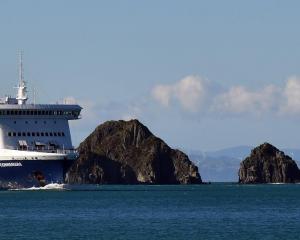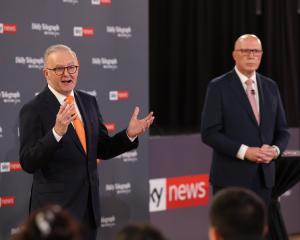Claims that council-owned companies are out of control and lack transparency (ODT, 5.8.16 and the editorial 6.8.16) are sadly ill-informed, lack business understanding and worse, threaten the ratepayers’ asset value.
Let’s apply some transparency to the facts, to how the current control of the companies was set up and why.
Fact: Prior to 2011, council companies were raising unsustainable debt to satisfy council demands for high dividends.
That reduced the companies’ values and raised costs — a dangerous mess.
Fact: The companies took on risky contracts and made inappropriate investments — even more dangerous.
Fact: In 2011, I asked for an expert review of the companies’ situation. On the recommendations of that review, the council replaced the board of the Holdings Company (DCHL) with experienced, qualified directors and instituted best corporate practice in their company oversight function.
Fact: Since then, the companies’ performance has improved markedly. They are all in profit and paying appropriate dividends — all bar one (Taieri Gorge Railway) are paying dividends greater than the cost of debt.
Fact: Regular reporting and updates from both the subsidiary and holding companies ensures both the council and the public are fully and appropriately informed.
The primary reason the council owns commercial enterprises such as City Forests, half of Dunedin airport and Aurora/Delta is to provide dividends to subsidise rates — and our average rates are in the lowest quarter of the country’s councils.
Prior to 2011, the annual DCHL dividend had reached $23million per annum.
That was largely because, behind the scenes, the council was demanding ever-higher amounts to help balance the books.
However, the companies’ profits were not high enough to sustain that level.
DCHL had instead borrowed nearly $40million to supplement dividends.
That was obviously not sustainable.
A sudden shortfall of some $8million prompted the council to investigate and review the entire governance structure and reporting of the companies.
Warren Larsen, one of New Zealand’s most experienced company directors, was brought in to conduct that review.
He found the subsidiary companies reporting to the holding company (DCHL), but DCHL’s board was made up of subsidiary board directors and chaired by a councillor. There was no independent oversight of the subsidiary companies.
Mr Larsen identified several problems:
● Significant governance issues in the company group.
● An untenable and worsening debt position.
● Poor communication between DCHL, the companies and DCC.
He recommended:
● No subsidiary company directors on DCHL.
● No councillors as directors.
● More specialised expertise — not just lawyers and accountants.
● Improve reporting mechanisms.
These reflected best corporate practice.
The council followed the recommendations and replaced DCHL with an interim board of highly respected directors.
They overhauled the subsidiary company boards.
Only one original board member stayed in place and new director expertise appropriate to the individual companies was hired.
Additionally, at the end of 2013, the DCHL CEO and the DCC chief financial officer positions were merged in the group chief financial officer (GCFO) role, providing comprehensive oversight of all council and council company financial affairs.
That person has subsequently been recruited as CEO of Allied Press.
Back in 2009, Delta had made several risky and imprudent deals and investments to boost dividend streams at the council’s demand.
Much company value was lost and Delta eventually moved out of civil construction altogether.
The last issue from this period still to be resolved is the bad debt for work on a Christchurch subdivision.
The go-ahead for the next stage to recover that debt was given to DCHL by the council recently.
The current DCHL board are all highly qualified company directors with appropriate expertise to oversee the companies.
They have commercial expertise that councillors do not have.
That is why the council hires them. Results since 2011 have steadily improved and all the companies are now doing very well.
All the companies are showing a profit and Delta’s balance sheet is improving.
The $40million debt that DCHL took on to pay dividends is now down to $31million.
Reporting from the companies to DCHL and to the council is regular and comprehensive and all councillors are invited to attend briefings.
The final piece of history comes from the Otago Daily Times editorial of 20.9.11 as the crisis was breaking.
"But Mr Cull is still correct in his view that councillors should not be on the boards of council companies ... It needs to ensure councillors are not board members and bring in some out-of-town directors. Boards, also, do not have to be dominated by accountants or lawyers. The council then needs, while receiving regular reports, to not interfere in the affairs or governance of the companies. In this, it would be wise to follow the approach of the Otago Regional Council as owner of Port Otago Ltd. That council keeps a healthy distance from port governance and operations and has received substantial and steady dividends ... Port Otago has also had strong, completely independent chairmen in recent times ..."
Ratepayer-owned companies are more expertly governed and more comprehensively examined and reported on than ever before.
Ill-informed criticism threatens to damage both their reputation and their value — hardly in the ratepayer owners’ interest.
This remains true today.
Comments
Transparency for all councillors too
What Mayor Cull does not explain here is why there has been an 'inner circle' with respect to information about council companies and also on other matters, mainly financial. In other words, not all information has been promptly available to all councillors. Cull's council once even passed a resolution, prohibiting attendance of all councillors, even as observers, when company matters were being discussed. I would love to hear a justification for this. It's the whole council who is supposed to consider information and then make decisions based on it, not just a handful of insiders with advance knowledge then presenting the rest of the council with fait accompli recommendations made in non-public meetings.










